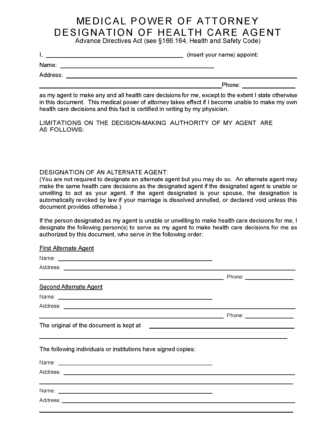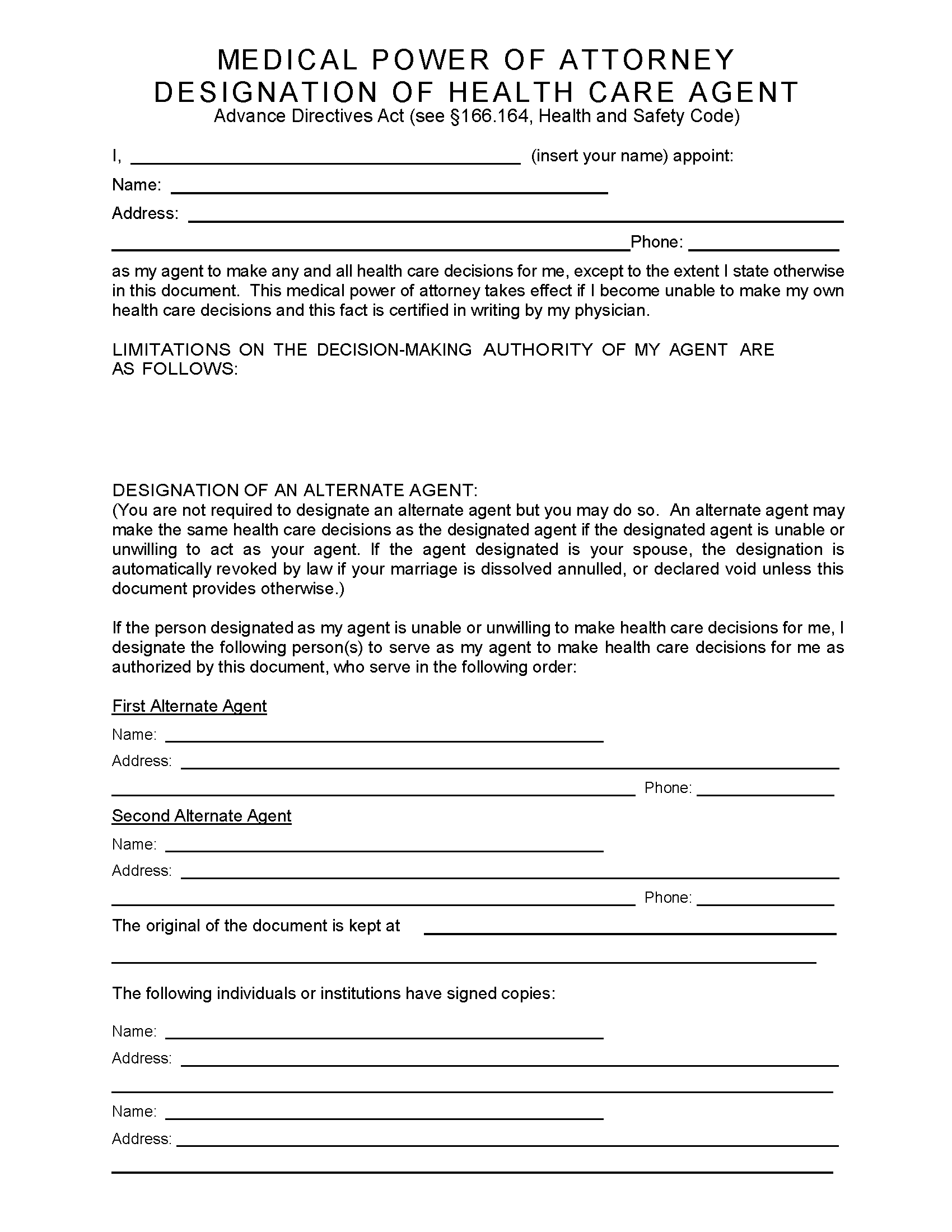Signing Requirements
An advance directive is valid if signed by two adult witnesses or acknowledged before a notary public.[1]
At least one of the witnesses cannot be any of the following[2]:
- The principal’s healthcare agent
- The principal’s relative by blood or marriage
- A beneficiary or heir to the principal’s estate or assets
- The attending physician
- An employee of the attending physician or the facility
- A claimant against the principal’s estate
Advance Directive (Preview)
Revocation
An advance directive can be revoked by the principal whether or not they are of sound mind.[3] The following actions will revoke an advance directive:
- Destroying the document or ordering someone to do so in the principal’s presence
- Executing a written statement of revocation
- Verbally expressing the revocation
Verbal and written revocations are effective once the attending physician is notified.

